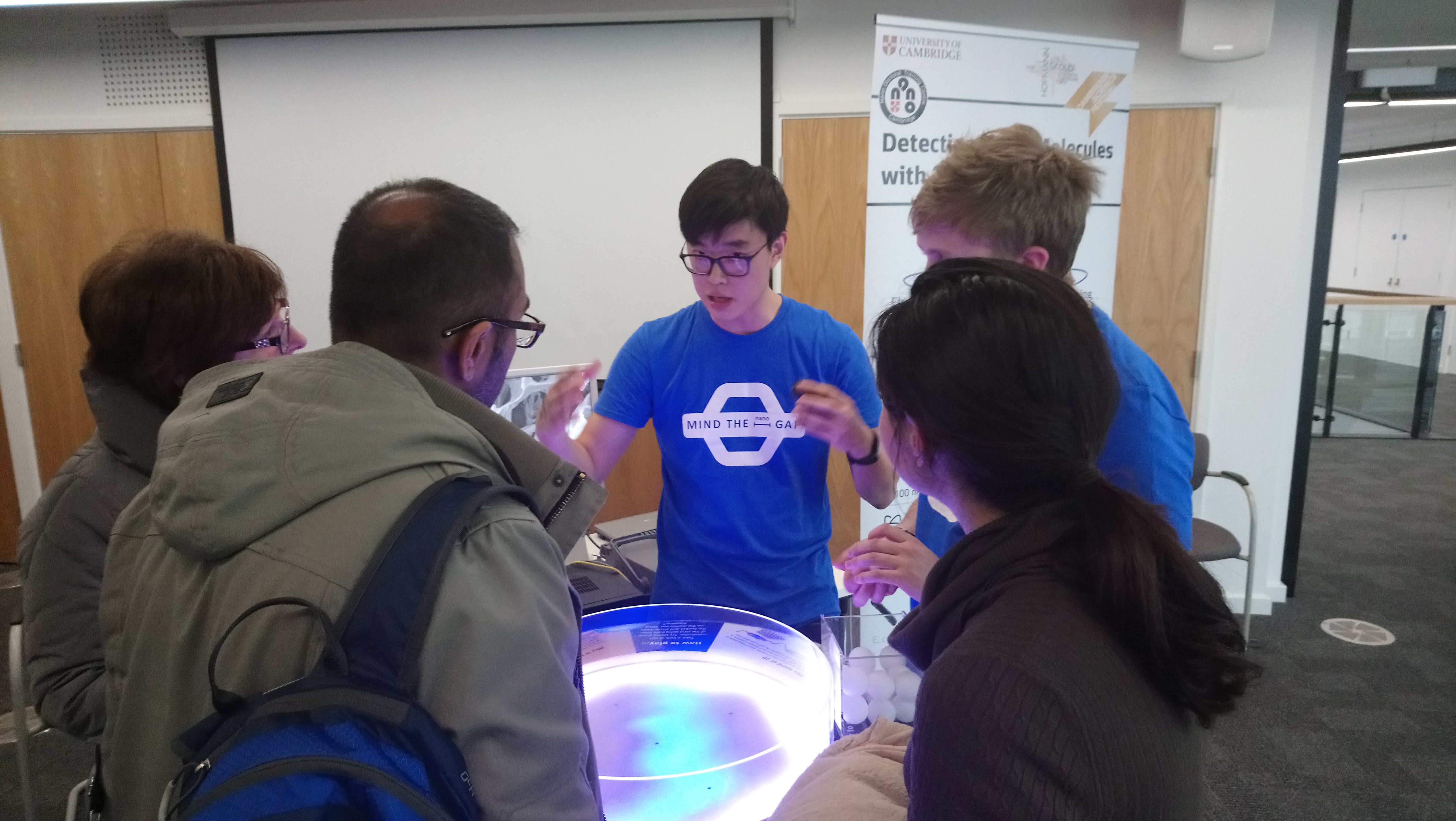The MRes year includes training in the responsible and ethical practice and communication of science, which provides students with the practical skills needed to successfully communicate and engage with a broad range of scientific and non-scientific audiences. This training includes the application of the Responsible Research and Innovation (RRI) framework to explore the societal and ethical implications of innovations in nanotechnology which students’ PhD projects may enable. Interactive workshops concentrate on the practical aspects of successful science communication including writing for a general audience about science, using social media as a scientist, and publishing and presenting science in a research context.
Beyond the formal training, there are several other opportunities for NanoDTC students to engage in science communication activities and training. Recent examples include the Nano Ambassadors Programme, science improv, artist-scientist engagement activities (which resulted in outputs such as NanoVignettes and Graphic Science, and participation in science festivals (e.g. our exhibit ‘Mind the (nano) Gap’ at the Royal Society Summer Science Exhibition in 2018. See here for more information about our outreach activities.
Our Nano Ambassadors are available for visits to universities (or online talks/discussions) to inform and enthuse undergraduate students about nanotechnology and its prospects. In-person visits are typically 1-2 hours long and can include accessible talks about cutting-edge research in nanoscience, as well as a discussion and practical advice about research careers in nanoscience. Please contact us if you are interested in hosting a talk.
Many of our current science communication activities are coordinated by Dr James Dolan, MRes Co-Director and Science Communication Junior Research Fellow at King’s College, Cambridge.
Mind the (nano) Gap
Mind the (nano) Gap was NanoDTC’s exhibit at the 2018 Royal Society Summer Science Exhibition. One of 22 exhibits selected for the event, it focused on detection of bio-molecules from their unique signatures as they interact with nanoscale gaps. In healthcare it is critical to be able to measure traces of molecules with great accuracy – to diagnose or monitor the progression of diseases, check for allergens in food, or for drug testing. Visitors found out about the biosensors of the future that use nanoscale techniques to detect molecules in extremely small quantities. Lots more info and interactive activities are available at http://nanogap.nandtc.cam.ac.uk
Cambridge Science Festival and Outreach Events
Artist-Scientist Engagement
Audio film series involving NanoDTC students and associates, showing glimpses of the natural and man-made world in stunning close-up. Produced by University of Cambridge Communications Office.

